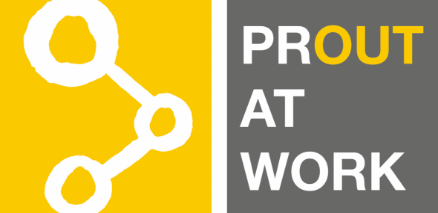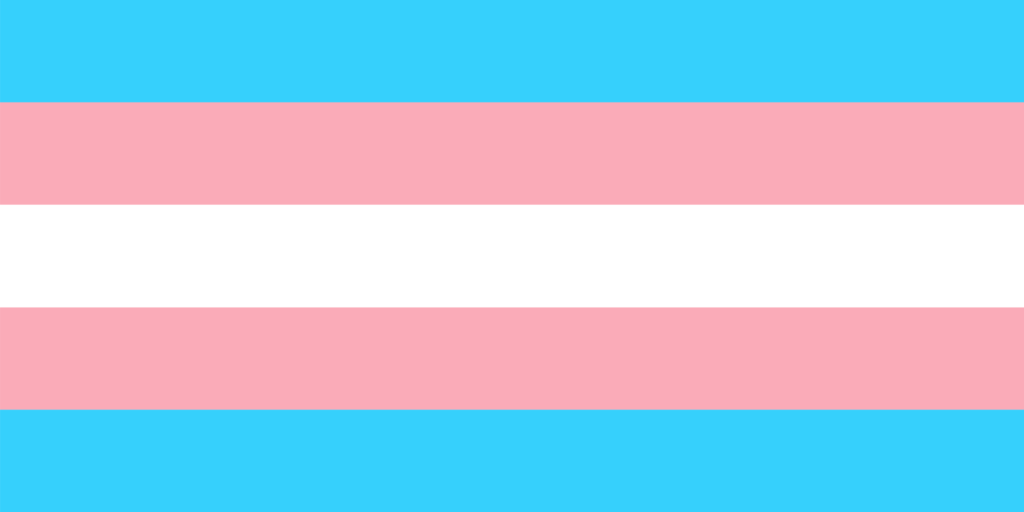
Self-determination instead of degradation!
The “Selbstbestimmungsgesetz” (law of self-determination) is supposed to put the 40 year old “Transsexuellengesetz” (law under which gender transitions are regulated) out of order.
This step is supposed to ensure that trans* people can change their gender without costly procedures, therapists and lots of paperwork.
Trans* inter* and non-binary people will need only to go to their local registry office and fill out a paper under oath to chance their gender.
there will also be a clause that protects trans* inter* and non-binary people from involuntarily being outed, or deadnamed.
It isnt clear yet if this law will be maintained in that way, or if more changes will be made in the end. At the end of the year it will once again be looked over by our politicans, before the law will have to go trough the usual parlamentary trials.
Of course we will keep you updated!
TIPS FOR TRANS* PEOPLE
Here at a glance is an excerpt on further assistance:
- Seek allies and role models within the company.
- If possible, work with the company to create a communication and action plan.
- Very important: You set the pace!
- Network with the LGBTIQ network, if one exists. We have compiled a list of LGBTIQ networks in companies and organizations.
TIPS FOR COMPANIES AND ALLIES
- A Transition Guide clearly specifies who is responsible. Note: the trans* person determines the pace and whether an action should be implemented. Every transition is individual
- Enable name and pronoun changes before the official decision is made.
- Training sensitize HR and management
- Establish and strengthen an internal LGBTIQ network with dedicated trans contact persons
- Inform about the topic trans*
- Use gender inclusive language, ask for a person’s pronouns so they use the one chosen by the trans* person and not their deadname. Deadname is the old, discarded name of a trans* person.
- Only ask questions that you would answer yourself
- Consciously stand up for the rights and against the discrimination of trans* persons
ADVICE CENTERS
BUNDESVERBAND TRANS*
“The Bundesverband Trans* (BVT) sees itself as a federation of individuals, groups, associations, federations and initiatives at regional, state and national level whose common endeavor is the commitment to gender diversity and self-determination and the commitment to human rights in terms of respect, recognition, equality, social participation and health of trans persons or persons not located in the binary gender system.”
DEUTSCHE GESELLSCHAFT FÜR TRANSIDENTITÄT UND INTERSEXUALITÄT E.V.
“The dgti has set itself the goal of promoting the acceptance of transidents within society and counteracting their stigmatization. It should advise and support those affected and interested, if this is desired. An essential aspect of the work should be the (re-)integration of affected persons into the work process, in order to counteract the danger of social decline, which is still associated with social change today. It advocates more openness to one’s own identity and takes into account the diversity of human existence.”
TRANSMANN E.V.
“Nationwide, volunteer-based, non-profit association for all woman-to-male (FzM/FtM) trans* and inter* people.”
TRANSINTERQUEER E.V.
“TrIQ is a social center and a politically, culturally and in the research field active association, which stands up for trans, intersex and queer living people in Berlin and beyond.”
TRANS*INTER*BERATUNGSSTELLE
“The project of the Münchner Aids-Hilfe e.V. is equally there for trans* and inter* people as well as their relatives and friends.”
TGEU
“TGEU is a membership-based organization that was founded in 2005. Since then, TGEU has steadily grown and established itself as a legitimate voice for the trans* community in Europe and Central Asia, with 157 member organizations in 47 different countries.”
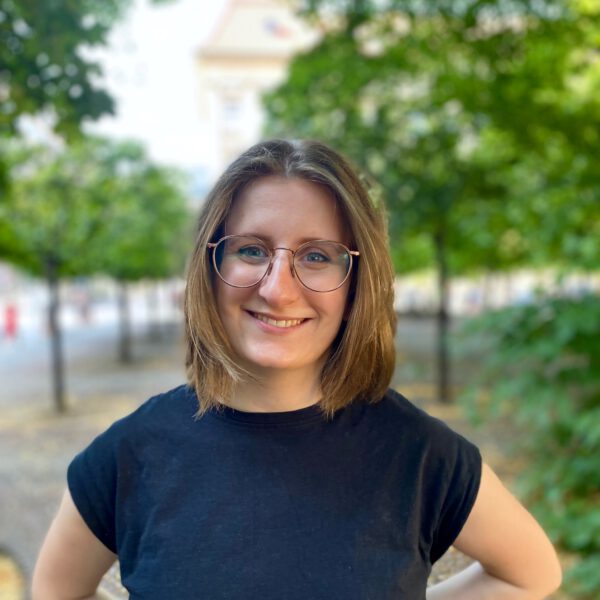
MYSTORY with …
RUTH
25 Years, Hamburg
“Despite, or because of the fact that I am hardly
affected by queer hostility, my experiences and
also those of others motivate me to publicly stand
up for education and rights of LGBTQ+ people…”
Published: September 2022
BI-Lieve in me.
For a long time, I considered it a privilege not to be seen as bisexual. It is both a curse and a blessing that on the one hand you experience less queer hostility on average if you live in a heterosexual partnership, for example – but on the other hand you don’t always experience full belonging to the LGBTQ+ community, or are too quickly labeled as either homosexual or heterosexual, depending on the partner at your side. Such experiences are, compared to the overall picture of queer discrimination, less bad and easy to cope with, whether in the political field, in private or in the professional environment, the latter being in my case the Shine network at PwC Germany.
Despite, or because of, the fact that I am hardly affected by queer hostility, my experiences and also those of others motivate me to publicly stand up for education and rights of LGBTQ+ people.
Pride Month is not only reserved for gays and lesbians – and society still has a long way to go in its development to not only think of the “L” and “G” in LGBTQ+ when it comes to queer topics, but to give all queer people the same treatment. Particularly issues away from the usual binary are still barely a concept for many, or are so foreign and incomprehensible that it’s easy to look away and associate queerness with tried-and-true queer role models, such as only gay men. However, the community is much more diverse and should be visible as a whole.
Admittedly, I also have to say that I personally find coming outs and labels to be incredibly oppressive and outdated at times. Along the lines of “why don’t straight people have to do that?” I sometimes think about, how unfair it is that queer people have to share something as personal as their sexuality publicly in order to avoid being looked at strangely because of their choice of partners. But I do recognize that this is still a very privileged point of view on my part.
Most people don’t have the luxury of such an open environment that any kind of queerness is immediately accepted without much fuss, while it should actually be self-evident nowadays. Unfortunately, however, past but also current events, such as the recent attack in Oslo, only emphasize repeatedly how important visibility of any kind is – and not only in June for Pride Month as a pinkwashing campaign of the mainstream corporations, but all year round without monetary consideration. Whether in the office, on the street or privately:
Visibility creates acceptance, dissolves long overdue norms and makes life easier especially for those who cannot (yet) live their queerness openly in fear of discrimination or hostility.
Therefore, I hope that the current social change will move steadily forward until no person has to live in fear because of his or her identity – which, in the best case, will not take too much longer.
DEAR Ruth, THANK YOU VERY MUCH FOR YOURSTORY!
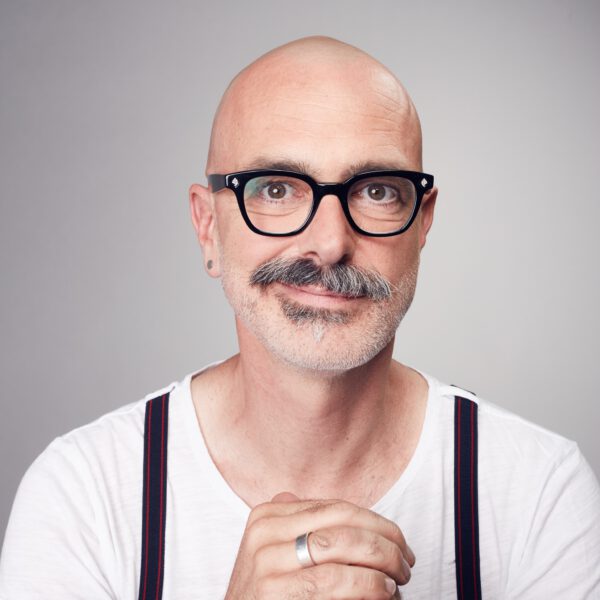
MYSTORY with …
Albert
51 Years, MUnich
“I go to work every day and
can say “I am what I am”! …”
Published: May 2022
The Walk.
I remember my school days very well. I grew up in a very Catholic environment. Catholic convent school. Early 80’s. In 7th and 8th grade, puberty in full swing. At the same time, HIV/AIDS was big in the headlines. All anyone knew at the time was that you were going to die from it. And so I was shaped – there was a right and a wrong. Gay = AIDS = wrong.
It wasn’t until much later that it became clear to me that I was gay. I only came out during my studies. After my pre-studies I went to Wales for a Master’s program. What a good opportunity to discover my sexual orientation. In this discovery process, I immediately had to experience a young gay man being rushed through the place. Again, it was burned into me: gay = wrong.
But, I dared. Then in London, after my studies, I experienced a cosmopolitan city, with gay bars that had shop windows. Anyone could look in. What a liberating feeling. Then, back in my hometown of Augsburg, I experienced a completely different scene: I had to ring the bell to be let in. The windows were taped up so that no one would see us.
But I didn’t let it get me down now, because I knew London. Took part in the very first CSD in Augsburg and felt super proud alongside 20 other people.
My professional life started with the usual “cost of thinking twice”. At that time I was not aware of it, because my learned formula was “gay = wrong”, so why tell about it at work. I was just with a friend or with friends on the road, there was nothing more private from me. Until a friend told me on a hike with the Gay Outdoor Club that he was completely out at BCG, that they have a network and make things happen. And of course he knew a gay guy at IBM, my employer at the time. He wrote him directly that there was a colleague at IBM who would support a network. It wasn’t 48 hours before his email was forwarded from the gay guy in Miami to a gay guy in London, who, Ken was his name, called me.
To this day, Ken only knows rainbow colourful, there is no backing out for the community for him. His first question was: “Are you out? If yes, I can make you attend the next LGBT leadership conference at IBM New York next week.” Of course, I was not outed, and thus the trip to New York was passé. But within the next week, I outed myself to my boss and my journey on LGBTIQ in the workplace began. I founded the LGBTIQ network at IBM Germany, got involved with the issue on a European level within the company, and got the first job in Europe in IBM’s sales department as a so-called “GLBT Business Development Executive”.
In all that time, I have had to listen to really stupid comments from time to time, some of which left me speechless, but I have never experienced any real discrimination. The support I experienced from the Out Executives at IBM built self-confidence in me, so that today I represent the topic without fear. Through the various roles I have held to date, I have been able to meet Out personalities, as well as Allies, who have inspired me and continue to drive me to continue with my advocacy. PROUT AT WORK has become the platform for that, Jean-Luc my partner in crime. Together we came up with such great ideas, encouraged each other that PROUT AT WORK is what it is today. And I go to work motivated every day and can say “I am what I am”. Thank you to everyone who has helped me become who I am.
DEAR Albert, THANK YOU VERY MUCH FOR YOURSTORY!
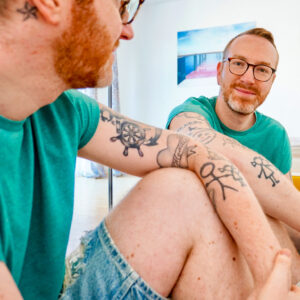
MYSTORY With …
torsten
39 Years, hamburg
“When I look at my life, I am happy.
Happy because it is so wonderfully normal. And that
is not a matter of course.”
Published: May 2022
A completely normal life.
I am aware that there are still many problems in the world and that we are far from reaching our goal. Many generations have already fought and many generations will still have to fight for it.
When I look at my life, I am happy. Happy because it is so wonderfully normal. And that is not a matter of course. I feel I’ve arrived and want to look positively at how far we’ve already come.
I have been living with my partner for 17 years, in 2011 we established our civil partnership and in 2018 we finally got married. Each of these events was a celebration with many friends and with the whole family.
In all this time and even before that, I did not have to experience any discrimination (at least not consciously) and no obstacles were put in my or our way.
There were never any problems getting an apartment. At no workplace did I ever have to discuss my sexual orientation or even hide it.Family and friends have always accepted my life model and never questioned it, rather supported it. There are other queer family members and happy children in their relationships. The circle of friends is mixed (various nationalities, sexual orientation, HIV-positive/negative, men and women) and together we enjoy life. Whether at home, in bars, restaurants, at events, on vacation and whatever else, we openly and visibly participate in life in society. And the best part is, most of the time I don’t even waste a thought on whether we might not be “normal”. It just doesn’t matter as long as we are doing well and feel comfortable and safe.
My most beautiful experience, which reflects all this, is the acquisition of our wonderful allotment garden. The day we introduced ourselves to the allotment board, we simply received the Nordic dry comment:
“Are you brothers, friends or a couple? Oh never mind, we already have all constellations here. Welcome to the club.”
It’s just a normal life in the best, most positive sense.
I wish that at some point we would no longer have to worry about who we are, what we do and where we come from. No one should have to justify themselves or take a back seat. It should no longer be necessary to have debates in the future. It should simply no longer be an issue, but a matter of course.
I wish that every person can live their normal life.
Dear Torsten, thank you very much for YourStory!
Ace Week 2021 Beyond Awareness
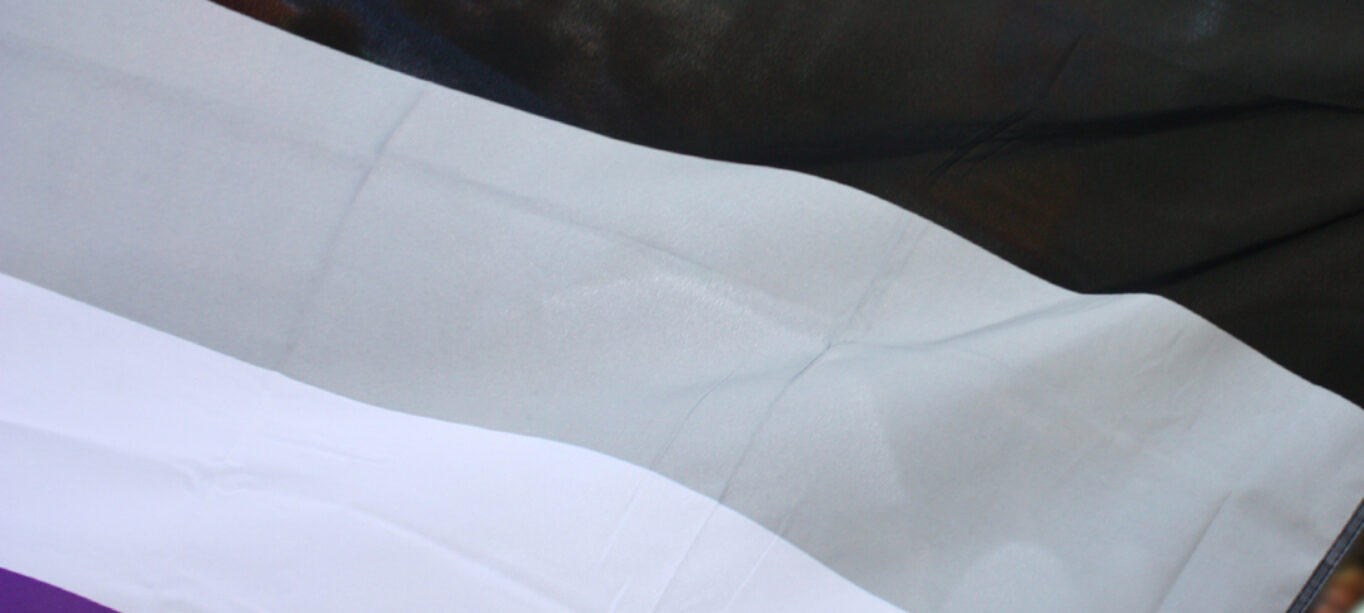
Ace Week (formerly known as Asexual Awareness Week) has been held annually in late October since its inception in 2010. This year, it will be held from October 24th to October 30th with the theme “Beyond Awareness.” Its purpose is to make A_Sexuality visible and to give a_sexual people the opportunity to talk about their experiences.
The term “a_sexual” is formed from the prefix “a” which means “none” or “without” and refers to no or only slight sexual attraction to other people and/or oneself. However, different organizations, but also a_sexual people themselves define A_Sexuality mostly individually.
In contrast, a_romantic describes no or only a slight romantic attraction to other people. A_sexual people are not necessarily a_romantic and vice versa. The opposite of A_sexuality is allosexuality (people who are sexually attracted to other people).
A_sexuality is on a spectrum, which is made clear by the underscore. Also part of the spectrum are for example demisexual (a person feels sexual attraction to another person only after a deep emotional connection), greysexual or also graysexual, (a person feels sexual attraction to others only rarely or very little) and many more.
A_sexuality is not related to celibacy. That means a_sexual people do not decide voluntarily or for religious reasons to abstain from sex. Moreover, despite their a_sexuality, they can perform sexual acts for various reasons, e.g. to have children.
This also distinguishes A_Sexuality from Antisexuality, where sex is rejected on principle. Additionally, A_Sexuality has nothing to do with repressed sexuality or fear of it. Ace people simply do not feel sexual desire. It is estimated that about 1% of humanity is a_sexual.
The symbolism behind the colors of the A_sexuality flag:
- Black stands for a_sexuality
- Gray symbolizes the a_sexual spectrum
- White stands for sexuality
- Purple represents the a_community
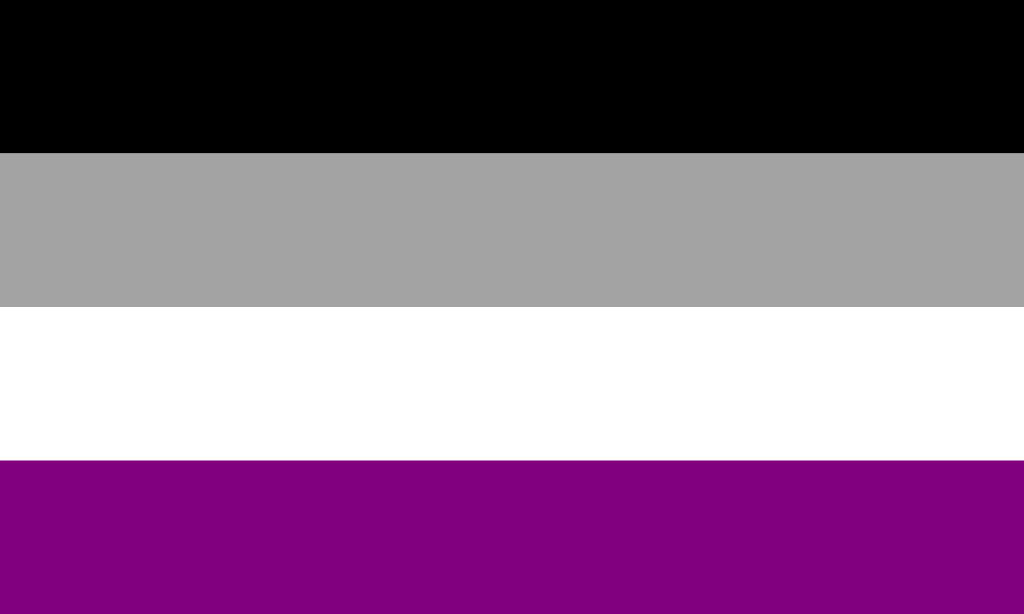
A_Sexuality can be defined individually, so this post is to inform about the topic and provide a basic overview. Use this week to learn more about the topic, because – you never stop learning!
TIPS AND RECOMMENDATIONS
Regularily, our board member Albert Kehrer invites an inspiring role model of the LGBT*IQ community or an LGBT*IQ Ally for a chat. You can look forward to an interesting exchange about role models and visibility in the LGBT*IQ community.
This event took place in German.
GUEST OF THE DAY
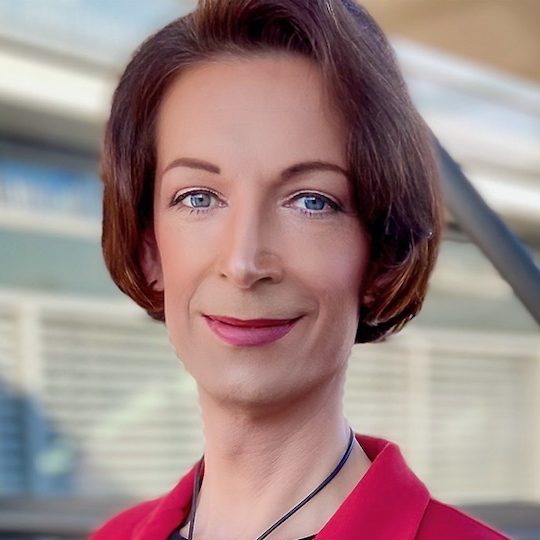
Sandra Vollmer
Board Member Finance and HR at 1&1 Mail & Media Applications SE
2nd Place PROUTExecutives 2021
Sandra Vollmer is responsible for the financial management of the 1&1 Mail und Media subgroup, known by its Web.de and GMX brands. In particular, she is responsible for supporting the company’s transition to a data platform-based digital business model and the associated change processes. She is also responsible for Corporate Controlling, Accounting, Tax and Procurement at the United Internet Group’s shared service company.
For Sandra Vollmer, equal opportunity is a fundamental part of the business. After all, it’s all about motivating qualified employees with exciting tasks and delivering top performance. In this context, nationality, ethnic origin, religion, gender and gender identity, age, disability or sexual orientation are completely irrelevant, but rather reflect the reality of a modern society to which, on the other hand, we provide our products and services.
In reality, unfortunately, we still encounter people who do not fully accept equal opportunities and in some cases represent traditional, outdated world views. Therefore, it is of great importance to Sandra Vollmer to actively demonstrate her own understanding of equal opportunities every day, for example in the staffing of projects, jobs and management positions. In addition, Sandra Vollmer supports internal company initiatives, such as the promotion of women in management positions. Her outing in a professional context took place in December 2020, so that her own transition, i.e. acceptance and “arriving” as a woman, was the main focus.
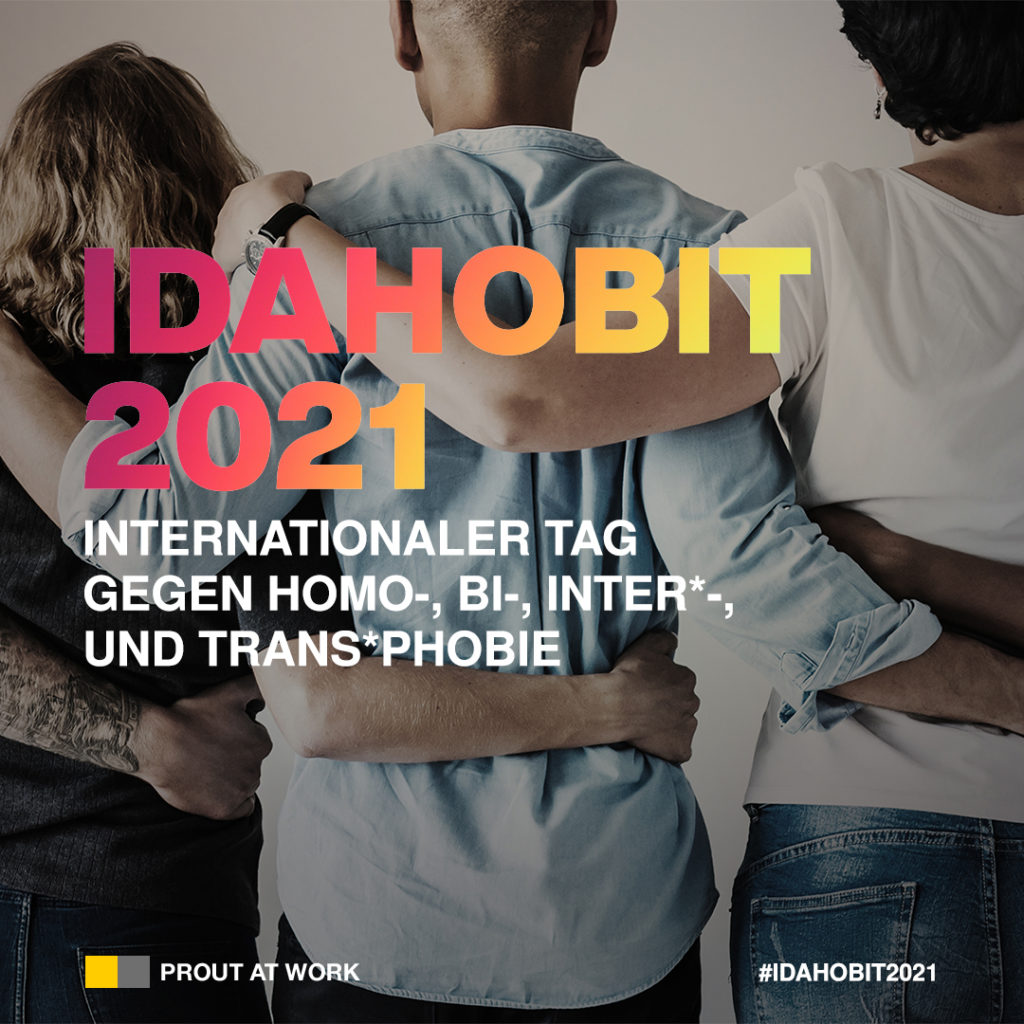
Campaign #QueerAtWork for IDAHOBIT
The International Day against Homophobia, Bi-, Inter- and Transphobia (IDAHOBIT) has been celebrated annually on May 17 since 2005 to highlight discrimination against the LGBT*IQ community, to raise awareness of existing inequality structures and to take a united stand for diversity and tolerance. May 17 marks the day in 1990 when the WHO removed homosexuality from the diagnostic code for diseases. For this year’s IDAHOBIT, we are calling on all LGBTIQ employees, regardless of their company, to post a portrait photo on their social media channels with the hashtag #QueerAtWork.
How can i participate in the Campaign?
- Inform and approach LGBT*IQ people from your own network and beyond to make them aware of the campaign
- Create a portrait photo using the templates, whether printed out or digitally using a tablet. (Be sure to clarify in advance whether you may use the employer’s company logo along with the template. Instead, you can use the company name or use the template without company information.)
- Post your own campaign photo along with the statement on May 17 2021, 9:00 am (CEST) with the respective hashtags and taggings on whatever social media channels you use
All the information, including the statement and template for the action, can be found summarized here as a download.
Hashtags
#IDAHOBIT2021
#QueerAtWork
#ProutAtWork
#FlaggeFürVielfalt
#LGBT
#[Diversity-Hashtag of your company]
#[Diversity-Hashtag of your corporate network]
Taggings
PROUT AT WORK
Facebook: @PrOut@Work
Instagram: @proutatwork
LinkedIn: @PROUT AT WORK-Foundation
Twitter: @proutatwork
If applicable, own company
Position yourself and your company as a supporter of the campaign and call on employees and executives to participate. Use the campaign to effectively advocate against LGBT*IQ discrimination internally and externally. The campaign is based on an idea by Magenta Pride, Deutsche Telekom’s LGBT*IQ employee network, and is supported by it.
IDAHOBIT 2021
Facts
Studies show that workplace discrimination experiences are still part of everyday life for many LGBT*IQ people. The study “Inter in the Office?!” The work situation of inter* people in Germany under a differential perspective to (endo) LGBTQ+ people.”, published in 2020 by Prof. Dr. Dominic Frohn states that 37.7% of (endo) trans and/or non-binary people surveyed, approx. 30% of inter* respondents and approx. 20& of (endo* cis) LGB+ people directly experience workplace discrimination , in the form of e.g. job rejection, transfer or dismissal.
It’s not surprising, then, that according to a Boston Consulting Group survey (2018/19), 22% of respondents see coming out at work as a potential career risk. 42% would lie to their manager about their sexual orientation and/or gender identity. More background information and studies on LGBT*IQ (in the workplace).
Support
Discrimination against LGBTIQ people is evident at other levels of society besides the workplace. Deal with these issues and make yourself aware of existing inequality structures. Only by becoming aware of these structures and grievances can you actively contribute to their dismantling. The points mentioned here are only an excerpt and not a complete list of possibilities with which you can start your commitment for LGBTIQ equal opportunities and against homophobia, bi-, inter- and transphobia.
Blood Donation
Discrimination against LGBT*IQ people is evident at other levels of society besides the workplace. Deal with these issues and make yourself aware of existing inequality structures. Only by becoming aware of these structures one can actively contribute to their dismantling. The points mentioned here are only an excerpt and not a complete list of possibilities with which you can start your commitment for LGBT*IQ equal opportunities and against homophobia, bi-, inter*- and trans*phobia.
EU LGBT*IQ Freedom Zone
In 2020, some Polish municipalities and cities declared their region as so-called “LGBT-free zones”. The establishment of entire regions where, according to the signatories, no LGBT*IQ people live is a clear attack on lesbian, gay, bisexual, trans and inter* people. As a first step, the European Parliament has declared the EU as an “LGBTIQ Freedom Zone” to send a clear message against the homophobic rhetoric and sentiment against sexual minorities in Poland. Find out more about the current events in this regard.
Selbstbestimmungsgesetz
The currently valid “Transsexuellengesetz” (TSG) is deeply discriminatory and should be replaced by the self-determination law. “The parliamentary group Bündnis 90/Die Grünen has submitted a bill “for the repeal of the transsexual law and introduction of the self-determination law” (19/19755)”. On May 19, there is a discussion on this in the Bundestag, in which it will also come to the vote. You can currently still contact suitable deputies in this regard.
A basic Law for all
Demand the addition of Article 3 GG, because LGBT*IQ people are still not protected by Article 3 in the German Basic Law. Many people within the LGBT*IQ community experience discrimination, exclusion and hate violence. We feel that a protection by the Basic Law is indispensable and therefore PROUT AT WORK is one of the first signatories of the appeal “A Basic Law for All”. Sign also now the petition or contact your delegates.
Legal Equality for queer Families
Stand up for the rights of rainbow families. Compared to children of heterosexual couples, the second mother must first adopt her child to provide legal protection – even if the parents are married. For example, support the nodoption campaign, which opposes stepchild adoption among rainbow families and advocates for recognition of parenthood.
People from the LGBT*IQ Community
As part of Awareness Day, we asked people from the LGBT*IQ community which role models helped them come out and why. We also asked them what structural changes they would like to see for more LGBT*IQ equality.
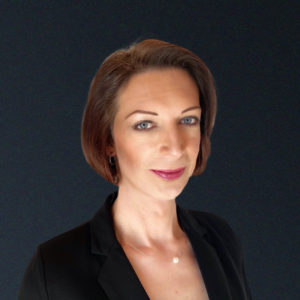
Sandra Vollmer, Vorstand Finanzen und HR, 1&1 Mail & Media Applications SE
Welche Role Models haben Dir beim Coming Out geholfen und wieso?
“Ich habe mich intensiv mit dem Outing v.a. anderer trans* Frauen beschäftigt. Sowohl im persönlichen Austausch mit anderen trans* Frauen, aber auch durch Recherche und das Studium vieler Biografien. Besonders bewegt haben mich die Lebenswege von Valerie Schnitzer (“Geheilte Seele – Befreites Ich”), die ich im Rahmen einer Lesung persönlich kennenlernen durfte, und natürlich die Geschichte von Anastasia Biefang, die als Führungskraft in der landläufig als „konservativ“ geltenden Bundeswehr ihre berufliche Transition erfolgreich vollzogen hatte. Wenn man es so will, war Anastasia für mich der Moment, wo ich mir sagte ‚Okay, Sie hat das klasse gemacht. Wenn das als Führungskraft in der Bundeswehr möglich ist, muss eine Transition in meinem Unternehmen für mich als Vorständin ebenfalls nicht unmöglich sein?‘ Und auch wenn ich am Ende die Kraft und den Mut für mein Outing aus ganz vielen unterschiedlichen Quellen geschöpft habe, war ihre Geschichte sicherlich eine davon!”
Welche strukturellen Änderungen in der Arbeitswelt wünschst Du Dir für mehr LGBT*IQ-Chancengleichheit?
“Ich würde mir wünschen, dass noch mehr Entscheider_innen althergebrachte Rollenbilder und Vorurteile abbauen, und mit geistiger Offenheit Vielfalt als Chance verstehen. Chance deshalb, weil ich fest davon überzeugt bin, wenn alle Mitarbeiter_innen ihre Talente einbringen und entfalten können, entstehen vielfältige und neue Ideen. Außerdem trägt das zu einem komplexeren und umfangreicheren Verständnis der Kund_innen bei, zu denen auch die LGBT*IQ Community zählt. Und zu guter Letzt erhöht das die Attraktivität als Arbeitgeber_in. Um das zu erreichen Bedarf es klarer Zielvorgaben durch die Unternehmensführung / Aufsichtsgremien, und ein professionelles Diversity Management, das einen bunten Blumenstrauß an Maßnahmen treibt und Fortschritte in der operationalen Umsetzung misst. Tendenziell also eher ein Marathon als ein Sprint! Und gerade deshalb sind Initiativen wie der IDAHOBIT so wichtig. Sie geben Denkanstöße, zeigen Handlungsalternativen auf und schaffen im besten Fall den Nährboden für ein Veränderungsbewusstsein.”
Sonsoles Pérez Laporta, Unternehmenskommunikation, AUDI Planung GmbH
Welche Role Models haben Dir beim Coming Out geholfen und wieso?
“Inspirierende Role Models haben zwei Merkmale: Wir können uns mit ihnen identifizieren und sie zeigen uns, was wir werden können: stark, mutig und sichtbar.”
Welche strukturellen Änderungen in der Arbeitswelt wünschst Du Dir für mehr LGBT*IQ Chancengleichheit?
“Coaching und Mentoring-Programme für die LGBT*IQ-Community und Aufklärung für potentielle Allies. In der Diversität sind wir stark, wenn uns die Vielfalt und ihre Vorteile bewusst sind und gefördert werden.”

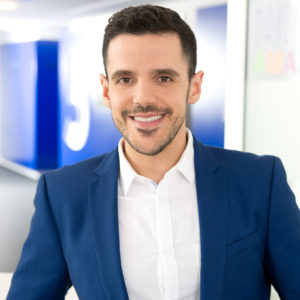
Thiago Machado, Global Senior Brand Manager, Beiersdorf
Which role models helped you coming out and why?
“Having peers and leaders openly out gave me the confidence to be myself and authentic at work – it gave me the confidence to be myself and keep working continuously to build a successful career. Having a role model made me realize I can be myself, that I can share about my personal life and take initiatives for a more inclusive environment. It does make a difference and I strongly believe that having people to look up to encourages me every day to do my best and be the example for the others around me.”
Which structural changes in the work environment aiming for equality of opportunities for the LGBT*IQ community do you wish for?
“First and foremost it is key that we integrate clear anti-discrimination guidelines into our HR policies and that we enforce these when we are made aware of behaviour that is not in line with these guidelines. Furthermore, every employer should offer similar benefits to same sex couples as they would to non-same-sex couples, that seems only fair to me! I also really believe in training to educate ALL our employees on Diversity & Inclusion, this plays a very important role for an inclusive and respectful environment. It gives the employees the opportunity to put themselves in the others’ shoes, respecting and valuing the diversity & inclusion. I wish for an environment where the workforce, globally, has the tools and information to understand that an inclusive workplace means more motivation, more productivity and more authenticity.
I wish that it is reflected not only in all internal touchpoints – recruitment & development, but also externally, positively impacting the society.”
Maik Brunkow, Employer Branding, KGMG Deutschland
Welche Role Models haben Dir beim Coming Out geholfen und wieso?
“Mein erstes großes Coming Out hatte ich leider nicht selbst bestimmt, aber ich habe meine sexuelle Orientierung auch mit 13 schon nicht verleugnet. Das lag zum Teil auch an vielen verschiedenen Stars im Musikbusiness, die schon erfolgreich Out waren. Ganz explizit waren das der Keyboarder einer deutschen Rockpopband und der Gewinner des britischen Castingformats Pop Idol.
Als nicht binäre Person hatte ich nie ein richtiges Coming Out. Einzelne Freund*innen waren Teil des Prozesses, in dem mir klar geworden ist, dass die, die mir in meinem Leben in unterschiedlichen Situationen gesagt haben, ich wäre entweder zu männlich oder zu weiblich, einfach unrecht hatten. In dieser Zeit hat es sehr geholfen, dass ein genereller gesellschaftlicher Wandel stattfindet. Die vielen Menschen, die sich nicht mehr einem binären Geschlechtssystem einordnen wollen und das öffentlich zeigen, sind für mich unglaublich wichtig. Irgendwann habe ich dann einfach angefangen, in meine Profile reinzuschreiben, dass ich Pronomen ablehne, wenn sie nicht benötigt werden. Sehr hilfreich war es für mich aber auch, dass meine Führungskraft aus einem Praktikum, das ich mal gemacht habe, jetzt auch in ihren Online-Profilen stehen hatte, dass sie nun they/them Pronouns verwendet.”
Welche strukturellen Änderungen in der Arbeitswelt wünschst Du Dir für mehr LGBT*IQ Chancengleichheit?
“Manchmal könnte man denken, wir wären schon am Ende der Gleichberechtigung angekommen. Ich glaube nicht, dass wir schon soweit sind. Auf gesellschaftlicher Ebene müssen wir unbedingt die rechtlichen Hürden für Geschlechtsangleichungen heruntersetzen und dringend die Stiefkindadoption für gleichgeschlechtliche Paare erleichtern. Am Arbeitsplatz folgen daraus für mich ganz konkrete Änderungen: es gibt in vielen Unternehmen immer noch keine Möglichkeit, Angaben zum Geschlecht mal eben zu ändern. Außerdem unterscheiden Policies zur Elternzeit und zur Rückkehr aus der Elternzeit noch häufig zwischen Männern und Frauen. Gleichgeschlechtliche Paare werden hier nur selten direkt angesprochen. Neben einem langfristigen Wandel von Unternehmenskulturen, sehe ich hier die größten Baustellen.”
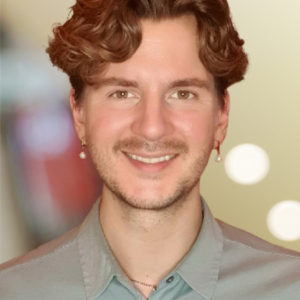

Merve Aksoy, Schauspielerin
Welche Role Models haben Dir beim Coming Out geholfen und wieso?
“Maren Kroymann, ihre selbstbewusste offene Art hat mir gezeigt wie selbstverständlich das ist und trotzdem eine erfolgreiche Schauspielerin sein kann. Ruby Rose, sie steht zu sich und ihrem Lifestyle, ihrem Style. Sie zeigt die „nackte“ Wahrheit. Sie engagiert sich für homosexuelle Rechte. Ich finde sie sehr mutig. Ich möchte auch andere inspirieren und unterstützen durch meine Sichtbarkeit beim Coming Out zu helfen.”
Welche strukturellen Änderungen in der Arbeitswelt wünschst Du Dir für mehr LGBT*IQ Chancengleichheit?
” Ich wünsche mir besseren Schutz vor Diskriminierung. Firmen sollen Diversity-Trainings und geschlechtsneutrale Toiletten anbieten. In Jobbeschreibungen die neutrale/korrekt gegenderte Version wählen (also “Fachperson” statt Fachmann, oder Reinigungsfachkraft statt Putzfrau). Die Möglichkeit gerade für trans Personen, schon vor der öffentlichen Namensänderung den gewählte Namen im Betrieb/Mailadresse usw. zu verwenden. Eine interne Ansprechstelle, wo Diskriminierung (von Kund*innen oder Mitarbeitenden) gemeldet werden kann.”
Counseling
LesMigras
“LesMigraS is the anti-discrimination and anti-violence section of lesbian counseling Berlin e.V.”
Gladt e.v.
” GLADT is a self-organization of black and of color lesbians, gays, bisexuals, trans, inter and queer people in Berlin, which stands up against racism, sexism, trans* and homophobia, ableism and other forms of discrimination and offers a diverse range of counseling services.”
Antidiskriminierungsstelle des Bundes
“The counseling team with lawyers can inform you about your rights in a case of discrimination or sexual harassment, show you possibilities if and how you can enforce your rights, strive for an amicable conflict resolution and try to name experts close to your home.”
Bundesverband trans*
“The Bundesverband Trans* (BVT) sees itself as an association of individuals, groups, clubs, associations and initiatives at regional, state and national level, whose common endeavor is the commitment to gender diversity and self-determination and the commitment to human rights in terms of respect, recognition, equality, social participation and health of trans or persons not located in the binary gender system.”
Deutsche Gesellschaft für Transidentität und Intersexualität e.V.
“Die dgti hat sich zum Ziel gesetzt, die Akzeptanz von Transidenten innerhalb der Gesellschaft zu fördern und deren Stigmatisierung entgegenzuwirken. Sie soll Betroffene und Interessierte beraten und betreuen, sofern dies gewünscht wird. Ein wesentlicher Aspekt der Arbeit sollte die (Re-)Integration von Betroffenen in den Arbeitsprozess sein, um so der Gefahr des sozialen Abstiegs zu begegnen, der heutzutage noch mit dem sozialen Wechsel verbunden ist. Sie tritt für mehr Offenheit der eigenen Identität gegenüber ein und trägt der Vielfalt menschlichen Daseins Rechnung.”
We look forward to a successful campaign!
If you have any further questions, please do not hesitate to contact us.
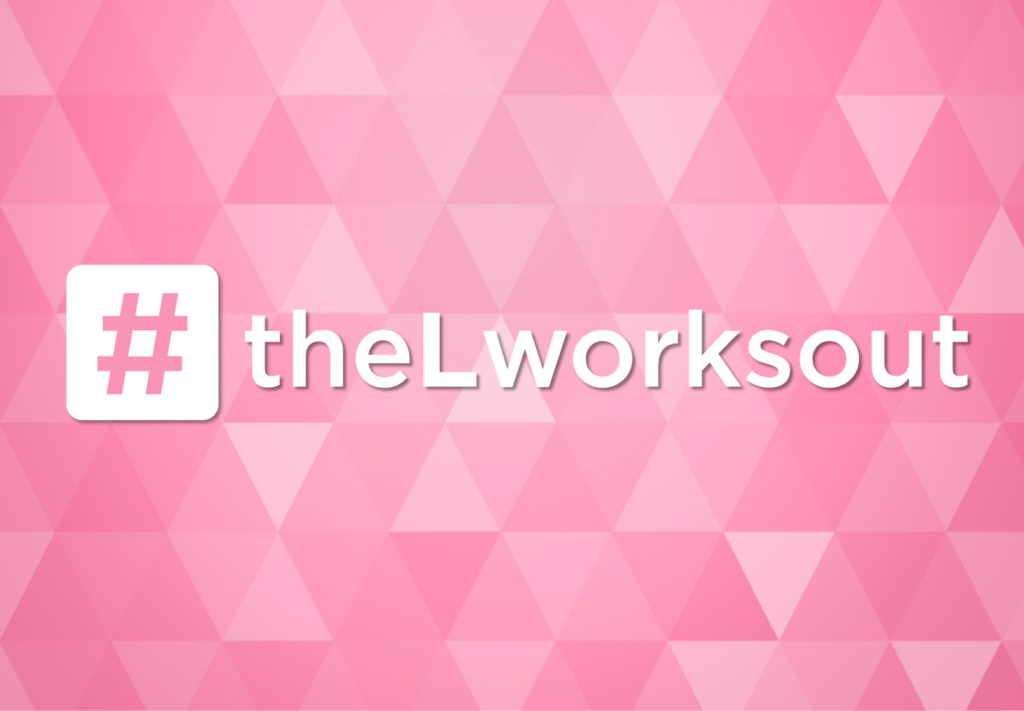
Campaign: #theLworksout for Lesbian Visibility Day
In contrast to many gay people, lesbian persons and also bisexual women are often not perceived, one speaks of Lesbian Invisibility. To this day, there are few visible lesbian role models – especially in the business context. In many networks lesbian persons are in the minority. As a result, there is a lack of role models for new and younger colleagues. Through the cross-network and cross-sector campaign #theLworksout on April 26, we can empower openly lesbian people and together create visibility through a large number of participants, as well as highlight the diversity of lesbian people.
HOW CAN I PARTICIPATE IN THE campaign?
- Inform lesbian people from your own network and beyond to make them aware of the action.
- Create a portrait photo using the templates, whether printed or digitally with the tablet. You are also welcome to use the template in grayscale, for example. (Make sure to clarify in advance whether you are allowed to use the employer’s company logo together with the template. Instead, you can use the company name or use the template without the company name).
- Post your own campaign photo on 26.04.2021 from 10:00 am with the respective hashtags and taggings on the social media channels you use
Hashtags
#theLworksout
#LesbianVisibilityDay
#LesbianVisibility
#LesbischeSichtbarkeit
#LGBTIQBusinessLadies
#ProutAtWork
#LGBTIQRoleModels
#FlaggeFürVielfalt
Taggings
PROUT AT WORK
Facebook: @PrOut@Work
Instagram: @proutatwork
LinkedIn: @PROUT AT WORK-Foundation
Twitter: @proutatwork
If applicable, own company
Position yourself and your company as a supporter of the campaign and for lesbian visibility and call on employees to participate.
The campaign was initiated jointly by the PROUT AT WORK-Foundation and LGBT*IQ business networks. The Lesbian and Gay Association (LSVD) and Wirtschaftsweiber e.V. support the campaign.
We look forward to a successful campaign!
If you have any further questions, please do not hesitate to contact us.
Since the publication of the joint position paper on blood donation in April 2020 with the co-initiator METRO AG and 15 other signatories, PROUT AT WORK has been publicly campaigning for a change in the hemotherapy guideline. Companies bear social responsibility: In this context, many provide premises for blood donation and call on employees to donate blood. An amended guideline will enable companies to offer a non-discriminatory working environment and at the same time fulfill their social responsibility.
On March 24, the Health Committee held a hearing on the topic of blood donation, at which PROUT AT WORK-board member Albert Kehrer was invited as an expert, among others. In the Live Talk he reported on his experiences and Nikita Baranov, Executive Assistant to CHRO at METRO AG picked you up with his impulse lecture on the topic of blood donation. He explained why it is important to advocate for policy change right now and how companies can contribute. Unfortunately, the video is only available in German.
Go directly to the hearing “Expertenstreit über die Zulassung zur Blutspende” here:
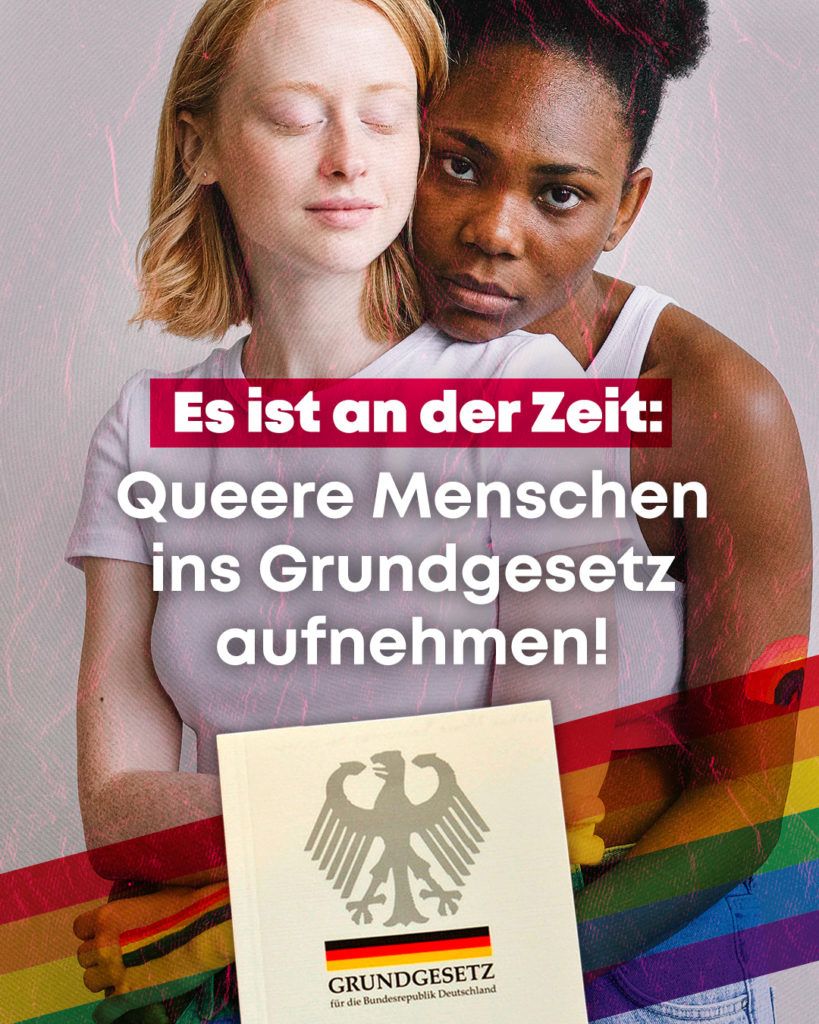
LGBT*IQ people are still not protected by Article 3 in the German Constitution. Many people from the LGBT*IQ community experience discrimination, exclusion and hate violence. We feel that a protection by the Constitution is indispensable and thus PROUT AT WORK is one of the first signatories of the appeal “A Basic Law for All”.
Federal government and Bundestag are currently negotiating the deletion of the term “race” in Article 3 of the Constitution. Let’s join together to send a strong message to politicians that sexual orientation and gender identity must be added to the article as well.
